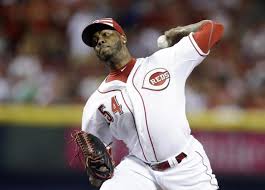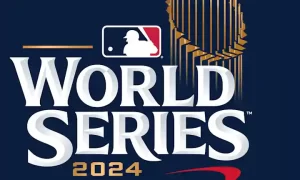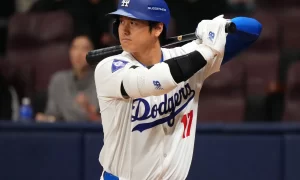A guest post from Daisy Letendre, friend of the blog:
The baseball season is still a month away but Major League Baseball has already secured its first win. Yesterday, MLB Commissioner, Rob Manfred, suspended Yankees closer, Aroldis Chapman, for 30 games under the league’s new domestic violence policy. The pitcher had been involved in an October incident in which he allegedly pushed his girlfriend against a wall, placed his hands around her neck, and retreated into his garage where he fired off eight rounds from a handgun into a wall. There were no charges filed.
This decision highlights the seriousness with which all accusations of domestic violence must be met. I applaud Manfred for doing the right thing especially in light of the broader implications of the punishment.
Chapman’s 30-game suspension sets a timely precedent as MLB examines two more domestic violence incidents. Yasiel Puig, the Los Angeles Dodger’s wily outfielder, is under investigation after allegedly pushing his sister and subsequently fighting with a bouncer outside a club in Miami. No charges were filed in this case either but under the new domestic violence policy that does not preclude MLB from examining the incident and deciding if and how to punish Puig.
The league is also investigating Colorado Rockies shortstop, Jose Reyes, who is awaiting trial for assaulting his wife in a Maui hotel this past fall. Charges have been filed in the Reyes case and the shortstop has already been suspended with pay by the team, prohibiting him from reporting to Rockies spring training. In light of the Chapman 30-game suspension it is almost guaranteed that Reyes will receive a more serious castigation. Some have argued that Reyes deserves a suspension of upwards of 80 days, and while I’ve argued in favor of a zero-tolerance approach (meaning if Reyes is convicted, he loses his job) we await Manfred’s final say.
Under the new domestic violence policy, there is no set maximum or minimum punishment, the commissioner determines this on a case by case basis. This approach has gotten the NFL into trouble in the past, but it appears to have worked in MLB’s first case. And yet, this is America and we’ve got the First Amendment (for now, at least – who knows what will happen after the November election) so of course, there are some who argue Chapman’s suspension should have been longer while others claim it is too long.
In fact, a poll that ran on NJ.com asked readers to weigh in on the Chapman suspension, giving them the following options: ’30 games makes sense’; ‘it should have been longer’; ‘he wasn’t even charged with a crime, too long’; or ‘Manfred just opened up a can of worms’.
Just over 46 percent of voters said that because he wasn’t charged, the punishment is too long. Almost 36 percent said that 30 games makes sense.
Here’s why the 30-game suspension makes sense. Chapman will lose $2.17 million off of his 2016 salary of $11.3 million and will also face some uncertainty as he enters free-agency at the end of this season. This little tidbit about free agency is interesting because had he been suspended for more than 45 games, he would have remained under Yankees control through the 2017 season. This ends up being sort of a backhanded punishment for the Yankees, who got a deal on Chapman – the hardest throwing closer in baseball – as his tainted reputation off the field brought trade talks with the Dodgers to a halt, making room for the Yanks to swoop in. It seems important to not give the Yankees another year of control, which would have essentially rewarded them for taking on a high-risk player. That being said, if Chapman performs well in 2016 he could still very well be in for a big pay day as a free agent this coming off-season.
Above all else, Chapman’s punishment as a whole highlights how MLB’s domestic violence policy actually works. Baseball as an entity has put together a system that looks like it could efficiently and effectively address these all too common circumstances. By comparison, when the NFL unveiled its domestic violence policy, the NFL Players Association was seeing it for the first time. MLB, on the other hand, worked with the MLBPA in negotiating the agreement. This is an important detail because it is probably what’s behind Chapman’s decision not to appeal his suspension. No appeal gives Manfred and the domestic violence policy some much needed credibility; it also prevents the players union from having to defend Chapman’s actions.
In a perfect world, this wouldn’t even be a topic of discussion. As Sean wrote yesterday, there really isn’t a winner in these dealings because it’s hard to tout something as a victory when a woman was mistreated in the first place. But Manfred and the MLBPA have handled this incident as well as they possibly could have, signaling a welcome change in how sports leagues address domestic violence. It’s an issue that can no longer be ignored nor haphazardly penalized.
-Daisy Letendre

















